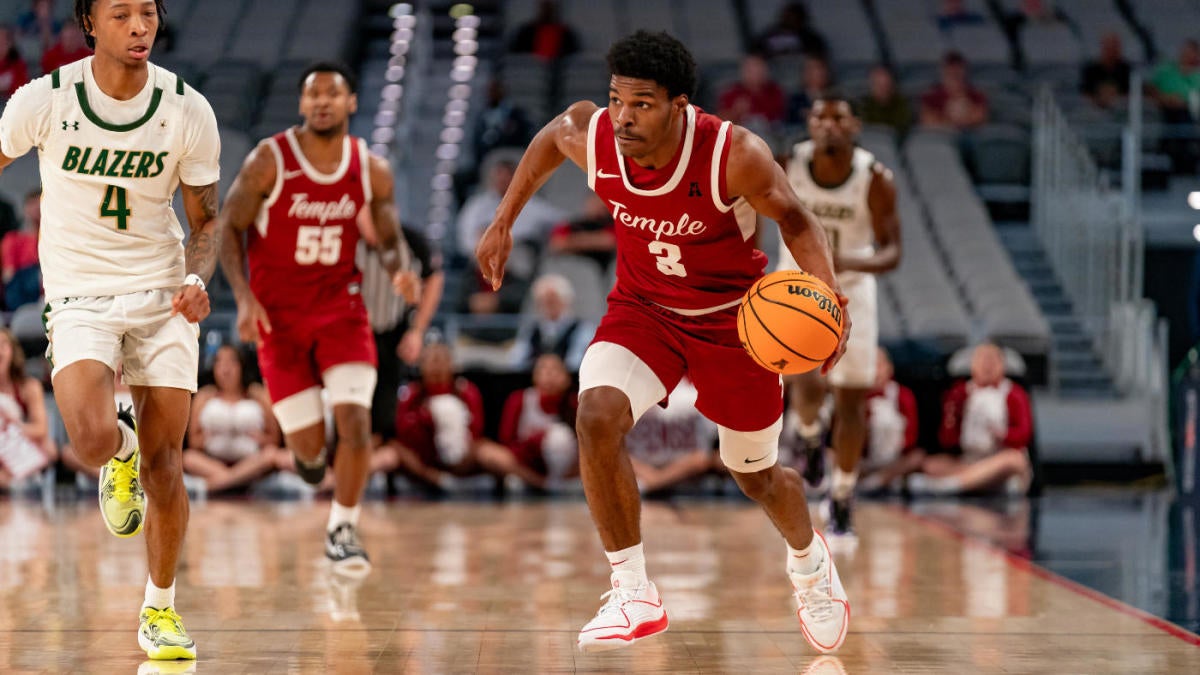Sports
Missouri sports betting amendment too close to call, minimum wage raised – Springfield Daily Citizen

With about 99% of total precincts reporting, there’s still not a clear winner on Amendment 2, which will decide if Missouri will remain one of the few Midwest states that has not legalized sports wagering.
At 2:20 a.m. Nov. 6, about 50.3% of voters had approved Amendment 2, while 49.7% had voted no. Fewer than 15,000 votes separated the “Yes” and “No” votes.
With 99% of precincts reporting, results from Missouri’s Secretary of State show Missouri showed that voters: denied Amendment 5, which would have allowed a new casino to be licensed on the Osage River; and denied Amendment 6, which relates to levying fees to equip law enforcement with improved benefits.
Results show Missourians approved a proposition to raise the state’s minimum wage and also Amendment 7, which prohibits the expansion of ranked-choice voting.
Amendment 2: Sports betting
A number of the state’s professional sports teams, including the Kansas City Chiefs, Kansas City Royals, St. Louis Blues and St. Louis Cardinals have led the effort to introduce legal sports betting in the state. It is legal to bet on sports in 38 U.S. states and Washington D.C., according to the American Gaming Association.
The sports betting amendment became the most expensive ballot issue campaign in state history. Winning for Missouri Education, the committee promoting Amendment 2, reported Oct. 28 it had raised $40.75 million since beginning its initiative campaign in January, according to Missouri Ethics Commission data.
Winning for Missouri Education is funded by online sports betting apps, with costs split evenly by DK Crown Holdings, owner of DraftKings, and BetFair Interactive, owner of FanDuel.
| AMENDMENT 2 — 3,552 of 3,572 precincts reporting | Votes | % | |
| YES | 1,440,546 | 50.3 | |
| NO | 1,425,659 | 49.7 |
Amendment 5: Lake of the Ozarks casino
With 99% or precincts reporting, a majority of Missourians have declined to amend the constitution to allow a new casino on the Osage River near the Lake of the Ozarks to be licensed. “Yes” votes tallied 47.7% and “no” votes 52.3%.
Under current law, casinos are only allowed to be located along the Missouri and Mississippi River. A “yes” vote would have allowed for a 14th casino license in Missouri, the first away from the two major rivers.
| AMENDMENT 5 — 3,552 of 3,572 precincts reporting | Votes | % | |
| YES | 1,344,220 | 47.7 | |
| ✔ | NO | 1,473,682 | 52.3 |
Amendment 6: Court fees and retirees
Missouri voters declined to amend to constitution to allow a fee to be added to criminal cases to support law enforcement retirement costs. Of the 3,552 reported precincts, 39.5% had voted “yes” and 60.5% had voted “no.”
From 1983 until 2021, a fee was added to criminal cases to support retirement costs for sheriffs and other court officers. In 2021, the Missouri Supreme Court ruled that it was an unconstitutional bar to the courts, which are to be open to all and where “justice shall be administered without sale, denial or delay.”
Amendment 6 would overturn that decision and relates to levying fees to equip law enforcement with improved benefits.
A $3 fee on court cases could generate about $2 million annually, according to a fiscal note for the legislation putting the measure before voters.
| AMENDMENT 6 — 3,552 of 3,572 precincts reporting | Votes | % | |
| YES | 1,081,1718 | 39.5 | |
| ✔ | NO | 1,658,202 | 60.5 |
Amendment 7: Ranked-choice voting
The Associated Press called the result of Amendment 7 at 10:17 p.m., declaring Missourians voted to amend the constitution to prohibit expansion of ranked-choice voting. With 99% of votes counted, 68.4% voted “yes” and 31.6% had voted “no,” according to unofficial results from the Secretary of State’s office.
The General Assembly asked voters to stop a movement popular in some other states to allow ranked-choice voting. Where it is used, the candidate to win the majority of first-choice votes wins. But if no candidate receives a majority, the candidate with the fewest top-choice votes would be eliminated; the remaining votes would be distributed among the candidates left based on the second-choice and other preferences selected by those voters. Whoever receives a majority of those votes would win.
In Missouri, only St. Louis has ranked-choice voting in nonpartisan elections.
The General Assembly added language to the proposal to institute a constitutional ban on voting by non-citizens. State law already prohibits non-citizens from voting
| AMENDMENT 7 — 3,552 of 3,572 precincts reporting | Votes | % | |
| ✔ | YES | 1,905,0774 | 68.4 |
| NO | 881,928 | 31.6 |
Proposition A: State minimum wage
With 99% of precincts reported, Missourians voted “yes” on a proposition that would raise the state’s minimum wage.
Missouri is one of 31 states to set a minimum wage higher than the federal minimum of $7.25 per hour. Proponents of Proposition A are trying to move the minimum wage to be closer to the so-called “living wage.” In addition, the measure would guarantee paid sick leave for over 700,000 Missouri workers who currently lack it.
A “yes” vote raises the state minimum wage from the current $12.30 per hour, to $13.75 on Jan. 1, 2025, and to $15.00 on Jan. 1, 2026, with subsequent increases tied to the rate of inflation. A “no” leaves the minimum wage at $12.30 per hour.
| PROPOSITION A — 3,552 of 3,572 precincts reporting | Votes | % | |
| ✔ | YES | 1,647,269 | 57.7 |
| NO | 1,205,495 | 42.3 |
Please note: you won’t find Amendment 1 or Amendment 4 on the Nov. 5 ballot — those were put before voters during the Aug. 6 primary elections.









